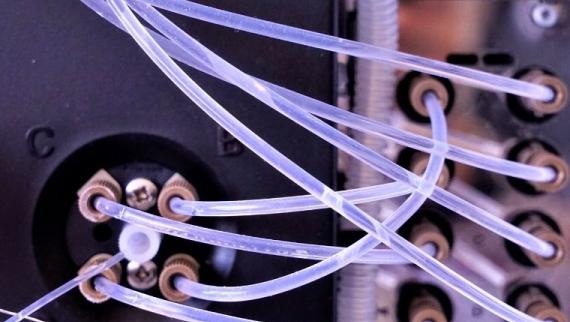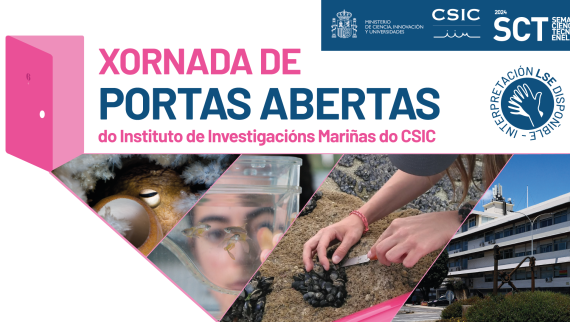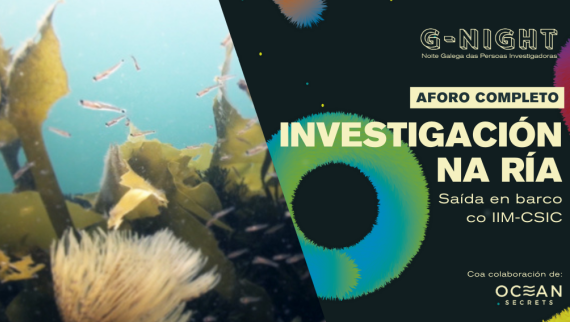Immunology & Genomics
Gaining a deeper insight into the processes related to marine life diseases, immune systems and gene expression is essential to develop a more sustainable and profitable aquaculture sector.
In addition, it can provide society with a large body of key knowledge and technology that can even be relevant for human health.
The studies carried out by the IIM-CSIC’s Immunology & Genomics group focus on the molecular basis for the immune response against pathogens in aquaculture fish and molluscs, their transcriptomics and proteomics, paying special attention to innate immune responses in these organisms and their potential biotechnological applications in animal and human health, as well as in process optimization in aquaculture.
The group seeks to identify genes that can be used as biomarkers in genetic selection processes and to improve the immune response by using immunostimulants and vaccines. They focus on key mechanisms of the innate immune response, such as antimicrobial peptides (AMPs), cytokine-based inflammatory processes or antiviral and antibacterial activities, employing immunological, microbiological, molecular biology and protein biochemistry techniques. The use of zebrafish (Danio rerio) for the study of both fish and human diseases is also one of the main features of the group's research work.
Together with other scientific and technological services (see below), the group is in charge of the National Reference Laboratory for Mollusc Diseases (LNREMB), which performs its tasks within this research group. In 2011, it was accredited to the ISO 17025 standard for different diagnostic techniques for mollusc pathogens. This service is accountable to the Spanish Ministry of Agriculture, Fisheries and Food (Ministerio de Agricultura, Pesca y Alimentación, MAPA).
- GENMARP -
<p>Programa Ciencias Mariñas: Xenómica marina do plancto</p>
Principal investigator:NovoaGarcíaBeatrizFunding body:El Programa de Ciencias Mariñas de Galicia es 1 de los 5 programas de Ciencias Marinas de los Planes Complementarios de I+D+I con las CCAA del Plan de Recuperación Transformación y Resilencia (NextGenerationEU).Funding for IIM-CSIC:19550€Go to project pageFromto - GENMARA -
<p>Programa Ciencias Mariñas: Xenómica marina aplicada a acuicultura</p>
Principal investigator:NovoaGarcíaBeatrizFunding body:El Programa de Ciencias Mariñas de Galicia es 1 de los 5 programas de Ciencias Marinas de los Planes Complementarios de I+D+I del Plan de Recuperación Transformación y Resilencia. Financiado por FEMP/FEMPA.Funding for IIM-CSIC:89541€Go to project pageFromto - METDISHFISH -
<p>Terapias metabólicas para el tratamiento de enfermedades infecciosas en peces de cultivo</p>
Principal investigator:NovoaGarcíaBeatrizFunding body:Ayuda cofinanciada por el Fondo Europeo Marítimo y de Pesca y el Ministerio de Agricultura, Pesca y Alimentación.Funding for IIM-CSIC:324175€Go to project pageFromto - IMANREFIVIR -
<p>IMMUNE ANTIVIRAL RESPONSE OF FISH AGAINST RNA VIRUSES</p>
Principal investigator:NovoaGarcíaBeatrizFunding body:Proyecto PID2020-119532RB-I00 financiado por MCIN/ AEI /10.13039/501100011033Funding for IIM-CSIC:160000€Go to project pageFromto - DIMCOVAR -
<p>Detección, infección y modelización de SARS-CoV-2 mediante analisis en estaciones depuradoras de aguas residuales y bioindicadores marinos</p>
Principal investigator:FiguerasHuertaAntonioFunding body:Fundación Banco SantanderFunding for IIM-CSIC:107000€Go to project pageFromto
- Lama, R.; Pereiro, P.; Figueras, A.; Novoa, B. (2022) Zebrafish as a Vertebrate Model for Studying Nodavirus Infections Frontiers in Immunology DOI:10.3389/fimmu.2022.863096
- Azeredo, R.; Machado, M.; Pereiro, P.; Barany, A.; Mancera, J.M.; Costas, B. (2022) Acute Inflammation Induces Neuroendocrine and Opioid Receptor Genes Responses in the Seabass Dicentrarchus labrax Brain Biology DOI:10.3390/biology11030364
- Sendra, M.; Pereiro, P.; Yeste, M.P.; Novoa, B.; Figueras, A. (2022) Surgical face masks as a source of emergent pollutants in aquatic systems: Analysis of their degradation product effects in Danio rerio through RNA-Seq. Journal of Hazardous Materials DOI:10.1016/j.jhazmat.2021.128186
- Ríos-Castro, R.; Aranguren, R.; Romero, A.; Banchi, E.; Pallavicini, A.; Novoa, B.; Figueras, A. (2022) Assessment of the environmental distribution of the protozoan parasite Perkinsus olseni by next-generation sequencing, qPCR and histopathology allows the identification of alternative bivalve hosts Aquaculture DOI:10.1016/j.aquaculture.2022.737984
- Bello-Perez M; Adamek M; Coll J; Figueras A; Novoa B; Falco A (2021) Modulation of the Tissue Expression Pattern of Zebrafish CRP-Like Molecules Suggests a Relevant Antiviral Role in Fish Skin Biology DOI:10.3390/biology10020078
- PhD - Magalí Rey Campos (01/10/2021) Variability and function of immune genes in the mussel Mytilus galloprovincialis Universidade de Santiago de Compostela (usc)
- PhD - Margarita Álvarez Rodríguez (18/06/2021) Antiviral immune response of zebrafish (Danio rerio) against the Spring Viraemia of Carp Virus (SVCV) Universidade de Vigo (UVIGO)
- PhD - Raquel Lama López (30/04/2021) Search for new strategies for controlling viral diseases in aquaculture UNIVERSIDAD DE SANTIAGO DE COMPOSTELA
- TFG - Ángel Rúa Cañadas (15/07/2019) Estudio y deteccion de parasitos en las especies de bivalvos de interes comercial Mytilus galloprovincialis y Ruditapes philippinarum en la Ría de Vigo Univerdidad de Vigo (UVigo)
- TFM - David Ferreiro García (05/07/2019) Caracterización de la proteína MgTX1 en mejillón mediterráneo (Mytilus galloprovincialis) Univerdidad de Vigo (UVigo)
- Capabilities | Development of “in vivo” bioactivity tests for biomolecules using animal models
Use of animal models (zebrafish, turbot, mice, etc.) as model systems to study the bioactivity of different compounds, as well as fish and human diseases (septic shock, inflammatory illnesses, etc.).
- Capabilities | Development of bioindicators for environmental monitoring
Characterization and measurement of micro-physiological responses or molecular markers generated in response to environmental conditions for the development of an early warning system for environmental perturbations.
- Capabilities | Advanced -omics applied to marine organisms
Studies on the structure of the genome of marine organisms, including gene mapping, DNA sequencing and how the complete set of RNA transcripts is produced by the genome and affected by development, diseases, or environmental factors conditioning the phenotype and particularly proteomics and metabolomics, always applying the most advanced techniques (ATAC-seq, MethylCap-Seq, RNA-seq, recombinant DNA technology, knockin and knockout CRISPR/Cas9, enhancer detector (ZED),Tol2 kit and BAC transgenic technologies, etc.).
- Capabilities | Pathogen incidence and risk assessment
Pathogen detection and identification in wild and farmed animals, as well as in seafood products. Evaluation of the relationship between pathogen incidence and various environmental and physiological aspects to provide risk assessments for target pathogens.
- Capabilities | Development of pathogen-resistant variants for aquaculture
Application of the most advanced -omic techniques for the identification of resistance genes that can be used as biomarkers for the selection of pathogen-resistant variants of marine aquaculture species.
- Patent | Myticin peptide and its use in cell regeneration
Authors: Antonio Figueras Huerta, María Gasset Vega, Beatriz Novoa García, Magalí Rey Campos, Ricardo Mallavía Marín, Regla María Medina Gali, Alicia Martínez López
The present invention relates to peptides derived from myticin C and to their therapeutic use, more specifically in cell and/or tissue regeneration. More detailed information can be obtained here.
- Patent | Andrographolide derivatives for their use in the treatment of cytokine-related inflammatory diseases
Authors: Eva María Rivero Buceta; Cristian Smerdou Picazo; Pablo Botella Asunción; Antonio Pineda Lucena; Carla María Vidaurre Agut; Beatriz Novoa; Antonio Figueras Huertas; Jose María Benlloch Baviera
Andrographolide derivatives for their use in the treatment of cytokine-related inflammatory diseases . Patent pending publication.
- Patent | Andrographolide derivatives for their use in the treatment of COVID-19 and associated pulmonary fibrosis
Authors: Antonio Pineda Lucena; Carla María Vidaurre Agut; Eva María Rivero Buceta; Jose María Benlloch Baviera; Cristian Smerdou Picazo; Beatriz Novoa; Antonio Figueras Huertas; Pablo Botella Asunción
Andrographolid derivatives for their use in the treatment of COVID-19 and associated pulmonary fibrosis. Patent pending publication.
- Patent | Method for the identification of antimicrobial polypeptides in Mytilus edulis
Authors: María del Mar Costa Portela, Beatriz Novoa García, Antonio Figueras Huerta, Sonia Dios Vidal, Camino Gestal Mateo
The invention provides a method for the identification of polynucleotides, coding precursors of polypeptides, with antibacterial and antiviral activity (myticines and mytilines). More detailed information can be obtained here.






























